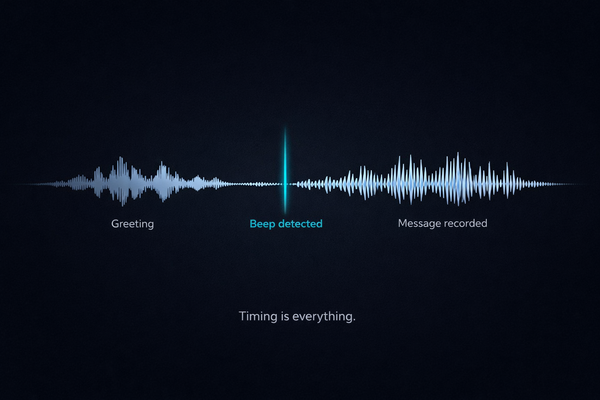[AI Digest] Multi-Agent Systems Orchestration Advances
![[AI Digest] Multi-Agent Systems Orchestration Advances](/content/images/size/w1200/2025/07/Daily-AI-Digest.png)
Daily AI Research Update - November 4, 2025
Today's AI research landscape reveals groundbreaking advances in multi-agent orchestration, enhanced LLM reasoning capabilities, and practical deployments for real-world customer interaction systems. These developments directly impact how we build and deploy intelligent agents for voice, chat, and web-based customer experiences.
📌 Simulating Environments with Reasoning Models for Agent Training
Description: Presents methods for creating simulated environments using reasoning models to train more capable AI agents
Category: Web agents
Why it matters: This research enables Anyreach to train web agents in realistic customer interaction scenarios, improving their ability to handle complex, real-world situations before deployment.
📌 TPS-Bench: Evaluating AI Agents' Tool Planning & Scheduling Abilities in Compounding Tasks
Description: Introduces a benchmark for evaluating how well AI agents can plan and schedule tool usage in complex, multi-step tasks
Category: Web agents
Why it matters: Critical for understanding how Anyreach's agents can handle complex customer workflows requiring multiple tools, ensuring efficient task completion and better customer outcomes.
📌 From Passive to Proactive: A Multi-Agent System with Dynamic Task Orchestration for Intelligent Medical Pre-Consultation
Description: Develops a proactive multi-agent system that dynamically orchestrates tasks for medical consultations
Category: Chat agents
Why it matters: Demonstrates proactive agent behavior patterns that could transform Anyreach's customer support from reactive to anticipatory, addressing customer needs before they explicitly ask.
📌 Leveraging Multi-Agent System (MAS) and Fine-Tuned Small Language Models (SLMs) for Automated Telecom Network Troubleshooting
Description: Uses multi-agent systems with fine-tuned small language models for automated troubleshooting in telecom networks
Category: Voice agents
Why it matters: Directly applicable to voice agent infrastructure, showing how specialized models can automate complex problem resolution in communication systems.
📌 Learning to Seek Evidence: A Verifiable Reasoning Agent with Causal Faithfulness Analysis
Description: Develops agents that can seek evidence and provide verifiable reasoning with causal analysis
Category: Chat agents
Why it matters: Essential for building trustworthy customer service agents that can explain their reasoning, increasing customer confidence and regulatory compliance.
📌 DART: Difficulty-Adaptive Reasoning Truncation for Efficient Large Language Models
Description: Introduces adaptive reasoning truncation to make LLMs more efficient based on task difficulty
Category: Chat agents
Why it matters: Could significantly reduce computational costs for Anyreach's chat agents while maintaining quality, enabling more scalable deployments.
📌 Efficient Test-Time Retrieval Augmented Generation
Description: Improves efficiency of retrieval-augmented generation during inference time
Category: Chat agents
Why it matters: Critical for real-time customer support where agents need to quickly retrieve and use information from knowledge bases without latency.
📌 Align to Misalign: Automatic LLM Jailbreak with Meta-Optimized LLM Judges
Description: Studies vulnerabilities in LLM alignment and proposes methods for detecting jailbreak attempts
Category: Chat agents
Why it matters: Essential for ensuring Anyreach's agents maintain appropriate boundaries in customer interactions, preventing harmful or inappropriate responses.
📌 Diverse Human Value Alignment for Large Language Models via Ethical Reasoning
Description: Proposes methods for aligning LLMs with diverse human values through ethical reasoning
Category: Chat agents
Why it matters: Important for ensuring Anyreach's agents can handle diverse customer values and cultural contexts, providing inclusive and respectful service globally.
📌 OmniFuser: Adaptive Multimodal Fusion for Service-Oriented Predictive Maintenance
Description: Presents an adaptive multimodal fusion approach for service-oriented systems
Category: Web agents
Why it matters: Demonstrates how to integrate multiple data modalities for proactive customer service, enabling predictive support before issues arise.
📌 Active Thinking Model: A Goal-Directed Self-Improving Framework for Real-World Adaptive Intelligence
Description: Introduces a framework for creating self-improving AI systems that adapt to real-world scenarios
Category: Web agents
Why it matters: Provides a framework for continuous improvement of Anyreach's agent capabilities, ensuring they evolve with changing customer needs.
This research roundup supports Anyreach's mission to build emotionally intelligent, visually capable, and memory-aware AI agents for the future of customer experience.




![[AI Digest] Agents Coordinate Plan Deploy Scale](/content/images/size/w600/2025/07/Daily-AI-Digest.png)